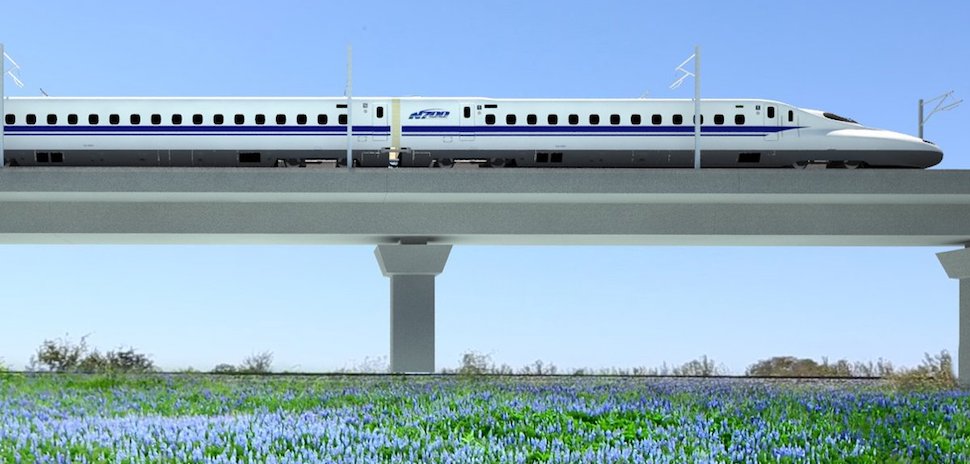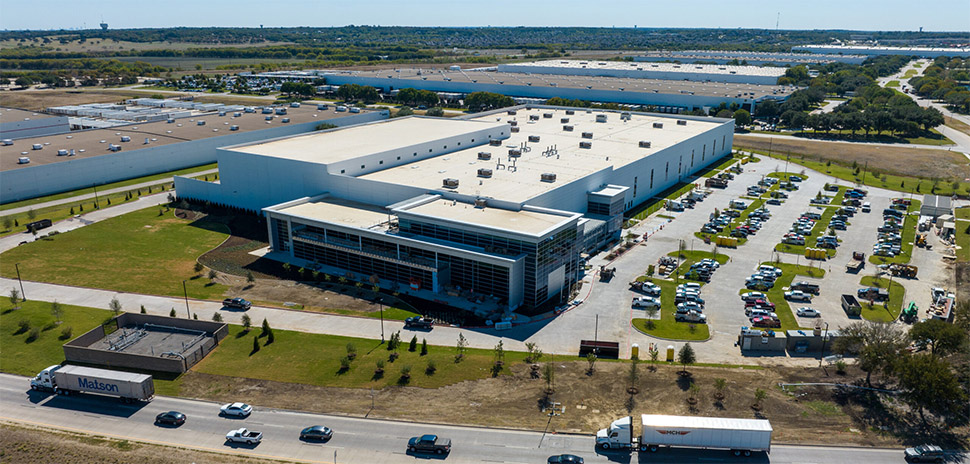The bullet train just got a new breath of life. The Texas Supreme Court ruled today that Texas Central, the company behind the proposed $30 billion high-speed rail line between Dallas and Houston, “has eminent domain authority” to seize land needed for the project.
In a 5-3 split decision, the court ruled that Texas Central and its entities have that authority as “interurban electric railway companies” under Chapter 131 of the Texas Transportation Code.
Texas Central’s CEO resigned two weeks ago in the run-up to the ruling, after months of recent headlines like Congressmen urge Texas Supreme Court to kill bullet train and Texas Bullet Train Challenged Over Property Taxes.
Texas attorney general’s office supported landowner in case
Last December, the Texas attorney general’s office sided with the landowner in the court case, James Miles of Leon County, who sued Texas Central to prevent it from surveying his 600-acre property.
“The [companies] may only make preliminary examinations and surveys of private landowners’ properties for the purpose of constructing and operating a bullet train if they are either railroad companies or interurban electric railway companies,” Texas AG Ken Paxton’s office said in a brief filed with the court, according to the Texas Tribune. “In the State’s view, the [companies] are neither.”
Today the court ruled otherwise, giving Dallas-based Texas Central a green light to survey property and condemn and appropriate the “land, right-of-way, easements or other property” needed to construct the bullet train line.
No need to prove Texas Central can finance the project
Paxton’s office also said in its filing that Texas Central hadn’t proved it could obtain the financing to actually build the rail line, but the Supreme Court waved that away.
“The extent to which the Texas Central Entities are in fact ‘equipped’ to finance and complete the project is hotly disputed, but regardless of who is correct on that front, Texas law envisions and addresses just that concern and others, providing numerous protections to property owners who are the subject of condemnation proceedings,” today’s ruling said.
The court cited several landowner protections, including the right of judicial review in certain cases, as well as the requirement for “adequate compensation” to be made when eminent domain is evoked.
Project’s goal: Speeding passengers at up 200MPH

Texas Central Dallas platform rendering [Image: Texas Central]
The Texas Central project has been on the drawing board for years. If it come to fruition, its goal is to zip passengers at up to 200 miles per hour between Dallas and Greater Houston in roughly 90 minutes.
In 2019, the proposed bullet train was named one of the world’s top infrastructure projects by infrastructure advocacy group CG/LA.
In 2020, Texas Central awarded a $5.9 billion contract to the Spanish firm Renfe to develop and operate its proposed high-speed rail service.
In 2021, Texas Central awarded a $16 billion contract to Webuild, an Italian industrial group, to lead the civil construction team that would build the proposed rail line. Webuild would be tasked to execute all the heavy construction for the project, including designing and building all 236 miles of the alignment. That followed a $1.6 billion contract with Kiewit Infrastructure South Co. to install the core electrical systems for the rail line.
Next steps are uncertain
The resignation two weeks ago by Texas Central’s CEO and the departure of its executive team have left next steps for the project uncertain. And opponents remain unhappy.
“We are very disappointed by today’s ruling from the Texas Supreme Court,” said the Miles family, the landowners in the Supreme Court case, in a statement after the verdict. “It’s hard to comprehend how the Court could grant eminent domain authority to a company that has no money, no approval to construct, no approval to operate, no CEO, no board of directors, and that is now being managed by a distressed asset consultant.”
The ball is now in Texas Central’s court. Will new leadership emerge to assert the eminent domain authority it’s now been granted?
Only time will tell. In the meantime, if you want to take a train from Dallas to Houston, you can try Amtrak. A one-way ticket tomorrow morning is $105.
Just don’t expect to go 200 miles per hour.
![]()
Get on the list.
Dallas Innovates, every day.
Sign up to keep your eye on what’s new and next in Dallas-Fort Worth, every day.







































































